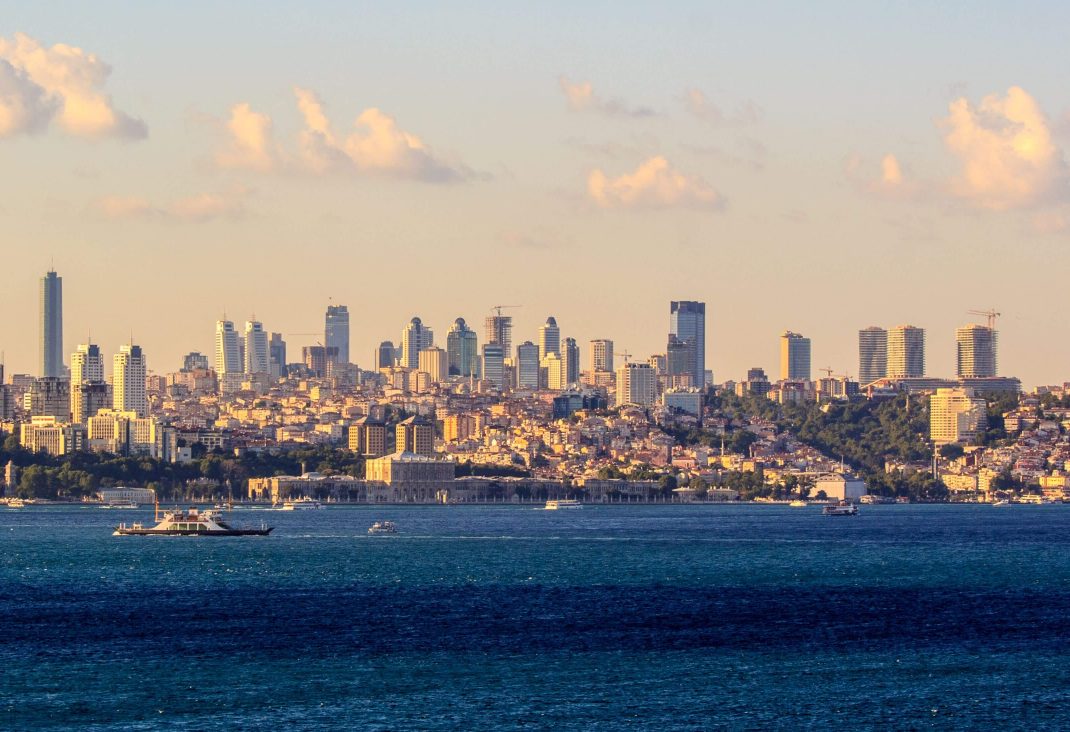MODERN TURKEY
ATATÜRK’S AGENDA: REDUCE, REUSE, REFORM
Mustafa Kemal became first president of the Turkish Republic in 1923. As part of his campaign to westernize Turkey, he required that all Turks adopt surnames, adding Atatürk, or “father of the Turks,” to his own name in 1934. He helped implement a Western style constitution and adopted the Gregorian calendar and the metric system. Many of his reforms focused on aggressive secularization. This meant abolishing polygamy, doing away with Islamic courts, and instituting secular law codes. In addition, he prohibited the use of the fez (traditional Islamic headwear), closed religious schools, and legalized alcohol. By 1928, Islam was no longer the official state religion. Labor codes and agricultural reform were introduced and new banks established to encourage commerce and investment.
Culturally, Atatürk sought to make the country distinctly Turkish. He mandated the Turkification of city names: Angora was changed to Ankara, Smyrna to Izmir, and Adrianople to Edirne. Tie stepped up his Turkification program by attempting to purge all Arabic and Persian influences. In 1924, Kurdish was banned and the adhan (call to prayer) was to be recited in Turkish rather than in classical Arabic.
Though Atatürk’s reforms were earth-shaking for all Turkish citizens, they had the greatest impact on women’s rights. Previously prohibited from holding jobs, women were granted equality with the new civil code. He overturned a 1917 bill that had both legalized marriage for girls as young as nine and condoned polygamy. Whereas women were once legally under their husbands’ control, the 1923 Suffrage Act regulated their education and incorporation into society.
You can visit Dolmabahce Palace where Mustafa Kemal Ataturk died with our Bosphorus lunch cruise tour.
It wasn’t always smooth sailing for Atatürk. His radical abolishment of the veil fired a debate that still burns today. In 1923 Trabzon’s Ali Sukru attacked Atatürk’s drinking and legalization of alcohol; his body later turned up in a shallow grave near Atatürk’s villa. A plot to assassinate Atatürk ensued, resulting in a mini-purge and 12 public hangings in Izmir. Experimentation with two party politics allowed the germination of the reform slowing People’s Republican Party (PRP) in opposition to Atatürk’s Peoples’ Party in 1924. Citing Kurdish unrest, Atatürk invoked emergency powers and banned the PRP in 1925.
Atatürk’s reforms had delivered Turkey from Ottoman lethargy to the twentieth century. He had replaced the Arabic alphabet with a Latin version by decree in the space of two months. Within a generation, Turks could no longer read the texts, letters, and books of their ancestors. Ties to the old order had been severed forever.



Leave a Reply